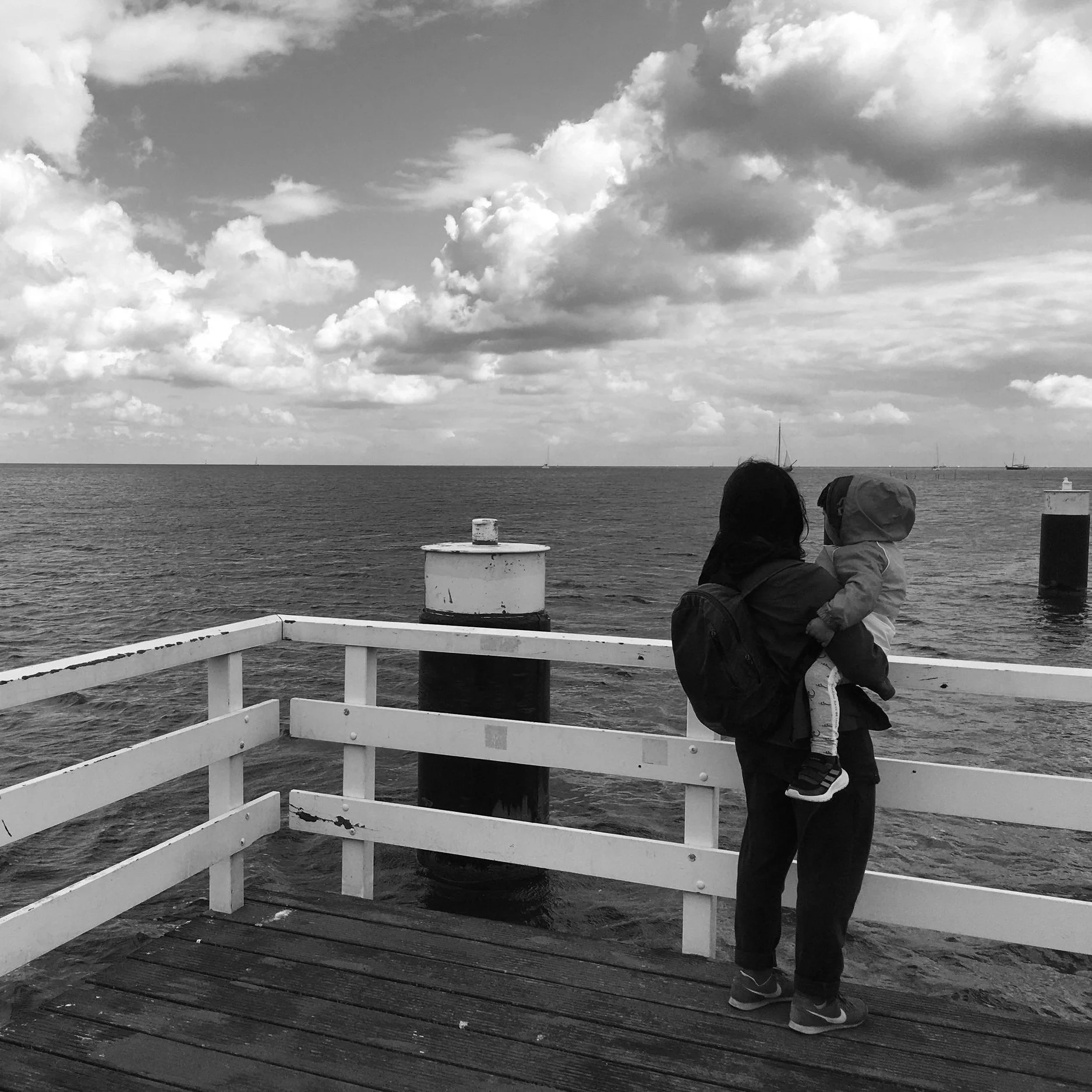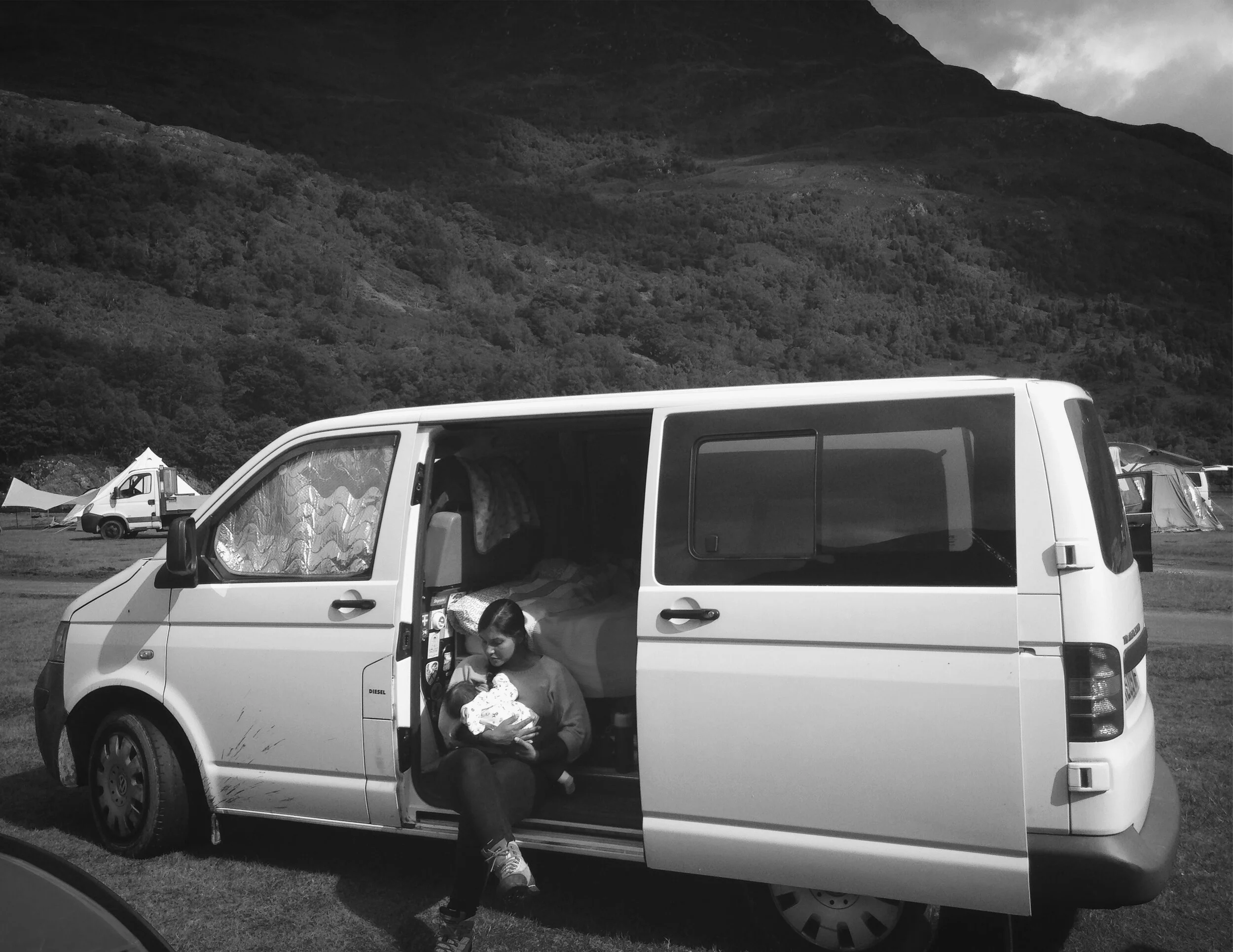Migrations | Motherscope: The Mom Salon
First published in the July 2021 edition of The Mom Salon print zine from Motherscope
Photo by Stuart Milne
For days now, the dandelion seeds have been floating, slipping inside through closing doors and rising to window ledges on the crests of spring’s lingering winds.
The mother plants rejoice even in the roughest caresses of tiny hands.
Exuberating in their decapitated states, they anticipate the huff and puff of rounded cheeks and the exhalation that will carry their children on their way. Their seeds are plentiful enough that those lost to the inhale need not be mourned; with matted wings they are destined to be spat out, back towards their mother’s still outstretched leaves. Here, they will implant themselves in the soil beside her remains whilst their siblings ride on gales towards pastures new.
So continues the generational migration of the underdog. A worker plant, labelled a weed by the establishment, yet providing sustenance for the grazing animals hunted through the crosshairs of their guns. Those with means lace their lawns with herbicides in wilful ignorance of the life-giving role of the humble weed; unimpeded by the necessity of nature’s movements and migrations in sustaining the flow of trophies that line their walls.
In the shadows, lost amidst the headlines and twisted tales of newspapers, countless more migrations are underway.
“Where are the vulnerable women and children?” the UK home secretary cries out, pointing to incoming vessels and ignoring the hundreds of women and children already before her, desperate for recognition, but rendered invisible through detention and a repetitive cycle of denial – be it of safety, freedom or simply a chance at life.
---
As the horizon dips, giving way to the sea, I spy the familiar undulations of Dover’s white cliffs. Viewed from inland, they are robbed of their grandeur, their allure lost to the wide expanse of sea and the fractured reflections of sunlight, which bounce over the waves. Pulling against my seat belt, I contort my body until I’m angled in a way that allows my breasts to reach my son. His tiny hands tug at my clothes as he latches as best he can from his position, secured in his car seat next to me. Ours is a parenting-hack yet to be depicted in any manual; but over the thousands of miles we will travel during his first few years of life, this contortionist form of breastfeeding will prove invaluable.
We have no return journey planned and our migration seems illogical to most. Yet there is familiarity and comfort in our movements.
As far back as names can be remembered, generations of our family have mapped similar routes across the globe. As a humble acquisition of belongings and a steady growth of acquired knowledge has passed from each parent to child, the nature of these migrations has varied, as have the forms of sustenance being sought.
There was no question of the necessity of the migrations that preceded ours.
“I thought we’d done the hard work so you wouldn’t have to,” my father reflects, “I never thought you too would have to struggle to learn a language like an outsider”.
We were meant to be the end of the chain – the last stop for our migrating family. Like many others who made it to the West, generations of toil had transformed us from a family of farmers and labourers to university-educated homeowners.
Of the many privileges that came with my place of birth, the freedom of movement it afforded me with is something I have never felt able to take for granted. The ability to easily choose my path and destination was a gift that had evaded my elders. Their journeys demanded untold sacrifices and insurmountable resolve in the face of hurdles and scrutiny that many would not withstand. Yet despite the comforts and privileges I was granted by my place of birth, remaining there meant not exercising the choice I had been gifted with.
Despite the familiarity born of a lifetime spent there, my birth-land had never truly fostered a sense of ‘home’. Instead, home existed as a more transient concept, experienced in the process of movement and change rather than a particular place. No doubt, this is a reality faced by many children of migrants; born to a land that is never fully accepting of them, their identities somehow tied to other destinations – albeit at times unvisited and unknown.
Upon becoming parents, consciously or not, many of us remap our neighbourhoods – our eyes surrendering our favourite haunts in favour of hazard-free spaces that suddenly materialise at the forefront of our vision. As a mother reevaluating the place I called home, my mind wandered ahead, second-guessing the life my son would have there – how he would perceive this place and its people, and crucially, how he in turn would be perceived and moulded by the environment around him. The lens of parenthood cast a disconcerting shadow and I began to feel trapped by the thought of a lifetime in this place that had been assigned rather than chosen by me, especially as the sentiments of home on offer seemed fallible and often insincere. I could not escape the creeping suspicion that maybe there was something – perhaps somewhere – out there, better suited to our newly formed family’s individual and collective needs. The strength born of my elders’ achievements - crossing borders, forging new existences and eventually bettering themselves and the opportunities available to their children, made me wonder if we could do the same.
Over the course of my family’s migrations something significant had changed, enabling me, as a brown person, to be seen not just as an immigrant but also (under certain circumstances) as an expat. This peculiar term is ambiguous and rarely uniformly applied. For many, it’s reserved for white people of certain means and status. Although that’s certainly the image one might conjure, the racial exclusivity of the term becomes murkier once factors of citizenship, economics and class come into play. Yet as with the images one conjures when thinking of the British, I am aware that I will also never occupy the imagined ideals the term expat evokes. In both instances, my belonging must be qualified and my credentials explained. My passport, accent and education usually enable me to cross these thresholds without much resistance; but I also find the perceived elevation of status afforded by the term expat unsettling, given that it isn’t extended to my parents and family members – including some from my own generation who in many respects, are no different to me.
Refugee/immigrant/expat – my newfound acceptance (albeit conditional) into the last of these categories makes my family one in which each of these labels has now been formally assigned. As a collective, these distinctions hold little meaning with regard to who we are; the semantics only become relevant in terms of how we are received.
---
On the other side of the Channel, we emerge from our ferry and proceed through the port of Calais, greeted by an ever-expanding stretch of barbed wire fencing. Occasionally, the hunched silhouettes of those without our freedoms, interrupts the repetitive pattern of metal grills. Carrying the weight of survival on their shoulders, there is so much more at stake in their entry than our exit and yet the hurdles they face are herculean whilst we barely notice where borderlines fall. Here on this terrain, the injustice born of the different values assigned to our lives plays out before our eyes. As we drive the length of its contours, the fence casts an elongated shadow, its tendrils lengthening their reach until they sweep over my son. It wasn’t so long ago that the children of our family would have been consigned to the other side.
We are not refugees seeking safety, or expats pursuing work or retirement dreams and few would even call us immigrants given the loaded and permanent nature of the term. We are just a family doing something, which, against the odds, feels safe and familiar to us – moving consciously into the unknown with hope, determination and the comforts and highs that accompany change.
Like the dandelions, perhaps it will be those of us well versed in adaptability that survive and flourish.
---
Three and a half years on from that journey, I cover my eyes as my son swings a beam of light directly into them. I touch his hand, redirecting the light beam towards the faded planet Earth ball I am holding. Rotating it, we enact the age-old demonstration of night and day.
Contemplating the infinity of space and time through the innocence of his eyes, I see clearly the abstract nature of the borderlines mapped across his ball. In our shared contemplation of the universe beyond our planet, I consistently find a truer sense of home. It may not be inherent in the land beneath our feet, or the land we left behind, but it is something that gains clarity against the infinite space beyond.
Having just turned four, he’s called more than seven places home. As long as he remains unperturbed and outward-looking, I’ve no doubt there will be many, many more.







